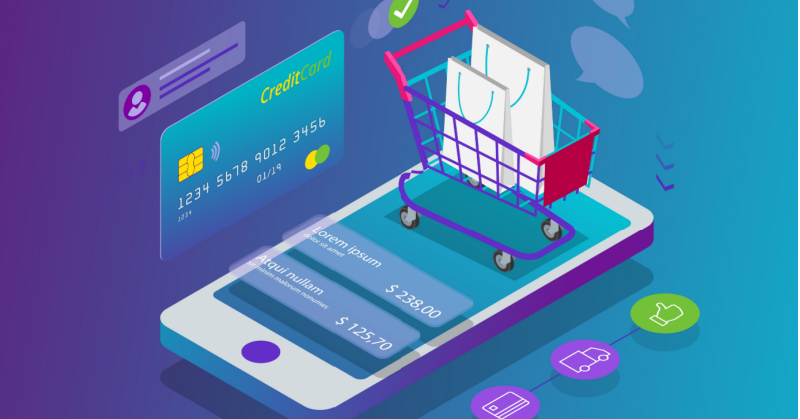In my first article of this series, I discussed the technology. used for specifically in eCommerce businesses. In the second article of this series, I discussed general business finance needs and how they apply to eCommerce businesses. In this 3rd and final article, I will discuss specific solutions for eCommerce accounting. It is helpful to learn about eCommerce accounting differences as most of the solutions outlined here address the problems unique to this space. Let’s use the flow of a profit and loss statement and identify solutions starting with revenue accounting and work our way down.
eCommerce Revenue Accounting Solutions
As mentioned in part 1, eCommerce sales happen on sales technologies and marketplaces and transact via a variety of payment processors. The big issue here is sales payout timing and underlying fee accounting. On a cash basis, deposits for these technologies and marketplaces will appear days after the sales minus any fees. Missing is the actual timing of sales and fees that make up the gross revenue value. This can be important when comparing marketing spend to revenue or understanding the true costs of a sale.
Enter the revenue accounting solutions which automate the breakout of fees and timing of sales that correspond to the delayed payouts.
A2X supports revenue accounting for sales channels including Amazon, Shopify, eBay, BigCommerce, Etsy, and Walmart with integrations to QuickBooks Online and Xero.
Bookkeep keeps orders, sales summaries, deposits, and cash balances correct in QuickBooks Online, Xero, and Sage Intaact for Amazon, BigCommerce, Booker by Mindbody, Etsy, Kajabi, Shift for Shop, Shopify, Square, Squarespace, Walmart, and WooCommerce.
QuickBooks Commerce integrates natively with QuickBooks online and Shopify, eBay, and Amazon.
Snyder synchronizes QuickBooks Online, QuickBooks Desktop, or Xero to the sales platforms including Shopify, Stripe, Etsy, Amazon, BigCommerce, eBay, WooCommerce, Walmart, Home Depot, Mendards, Best Buy, Magento, Lowes, Wix, Squarespace, and Ecwid by Lightspeed. It also connects QuickBooks Online, QuickBooks Desktop, or Xero to payment platforms including Square, PayPal, Clover, Braintree, Payments Pro, Checkout.com, 2Checkout, Worldpay, WePay, AfterPay, GoCardless, Payrix, Pin Payments, Authorize.net, and LawPay.
There are many nuances to each solution so dig in to understand how each might fit with your practice.
Inventory Accounting
A quality Cost of Goods Sold and inventory tracking on the balance sheet is best served with an inventory management solution. These tools are primarily used in eCommerce operations to manage inventory across sales channels, 3PLs, and warehouses depending on the business. The best solutions integrate with sales channels, shipping tools, accounting software and more. There are many solutions here, but here are some with their accounting software integrations.
- Cin7 (including Dear Systems) – Cin7 bought Dear Systems (now call Cin7 Core) which integrates with QuickBooks Online and Xero. Cin7 Omni is a product that was originally Cin7 and integrates with QuickBooks Online, QuickBooks Enterprise, and Xero. Cin7 positions itself as having capabilities for product planning, cost and development, manufacturing, sales, shipping, and payment features.
- Finale Inventory – Finale Inventory is an inventory management solution for applications involving high volume, multichannel eCommerce and warehouse management. Finale works QuickBooks Online, QuickBooks Desktop, and Xero to track the financial impact of operations, including prepaid inventory, landed costs, builds & kitting, and COGS.
- Fishbowl – Fishbowl is well known for their QuickBooks Enterprise integration with Fishbowl Advance. They are also launching cloud-based solutions including Fishbowl Drive and Go.
- QuickBooks Commerce – QuickBooks Commerce comes from their acquisition of TradeGecko. It is natively integrated with QuickBooks Online which is a key differentiation.
There are many other inventory solutions, and their specific capabilities are broad and specific. The key decisions when selecting a solution depends on needs for number SKUs managed, warehousing, manufacturing, and integrations.
Sales Tax
Rounding out the trifecta of eCommerce accounting must haves is sales tax software. These solutions facilitate and automate the calculation, filing, and analysis of all things sales tax. Solutions most commonly used with eCommerce include:
Payments
Payments solutions aren’t unique to eCommerce, but there are some unique needs specifically international payments. This is due to suppliers that are often spread across the world. Solutions that help with international payments specifically include:
EDI
Electronic data interchange or EDI is a way for businesses to manage purchase orders, shipment notices, invoices, and other supply chain actions. It is most common with a consumer product brand establishes relationships with wholesale or retail providers who purchase large volumes of product and require EDI solutions for interacting. EDI solution providers include:
Other Finance Tools
Payroll, credit cards, and banks are all a part of the accounting technology stack. For the most part, these solutions don’t have eCommerce specific capabilities. Some will have integrations or programs for online sellers, but these are often minor in nature compared to their overall capabilities.
ERP
Enterprise Resource Planning or ERP software are the big suites that run many mid-size and large businesses. ERP solutions are very capable eliminating the need for integrating point solutions. The vast capabilities of ERP solutions come with the tradeoff of usability and cost both in terms of subscription fees and total cost of ownership. Some of ERP solutions that target eCommerce businesses include:
Summary
There is a lot of complexity to eCommerce accounting and lots of tools to help. eCommerce continues to evolve as do the accounting tools with new features and vendors emerging regularly. Building your eCommerce accounting tech stack is critical to success in this growing and dynamic space.
.png?width=150&height=63&name=TWRlogo-regmark_blueblack%20(1).png)
.png)










Do you have questions about this article? Email us and let us know > info@woodard.com
Comments: